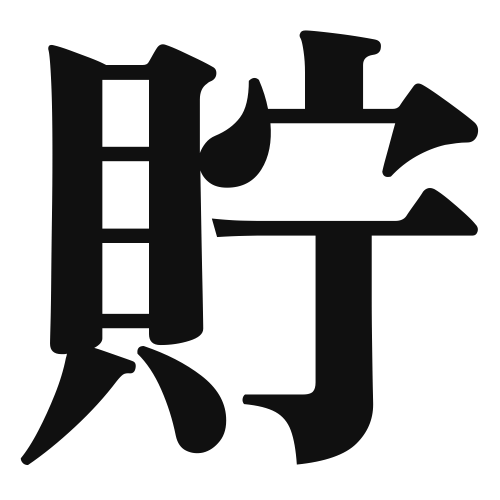1. Overview of Meaning
The kanji “貯” (pronounced “cho”) means “to save” or “to store.” It is commonly associated with saving money or resources for future use.
2. Formation and Radical
Formation of the Kanji: The kanji “貯” is a compound character (会意文字) that combines the elements of “貝” (shell, which often represents money) and “儲” (to earn or accumulate). This combination signifies the act of accumulating wealth or resources.
Radical: The radical of “貯” is “貝,” which is related to valuables or money.
3. Examples of Usage
Common Words and Phrases:
- 貯金 (ちょきん, chokin) – savings
- 貯蔵 (ちょぞう, chozou) – storage
Example Sentences in Daily Conversation:
- 私は毎月少しずつ貯金しています。 (I save a little bit every month.)
- この食材は冷蔵庫で貯蔵できます。 (This ingredient can be stored in the refrigerator.)
4. Synonyms and Antonyms
Similar Kanji:
- 蓄 (ちく, chiku) – to accumulate, often used in the context of accumulating wealth or resources.
Antonyms:
- 浪費 (ろうひ, rouhi) – waste or extravagance, which means to spend money or resources carelessly.
5. Cultural and Historical Background
Relation to Japanese Culture: The concept of saving is deeply rooted in Japanese culture, where frugality and resourcefulness are valued traits. Saving money is often seen as a way to ensure financial stability and security.
Proverbs and Idioms:
- 「備えあれば憂いなし」 (Sonae areba urei nashi) – “If you are prepared, you will have no worries,” emphasizing the importance of saving and preparation.
